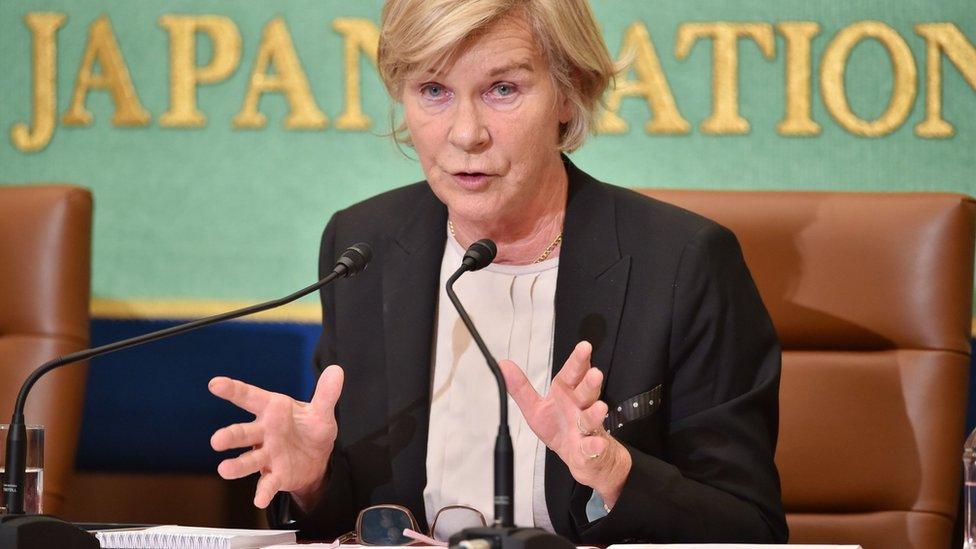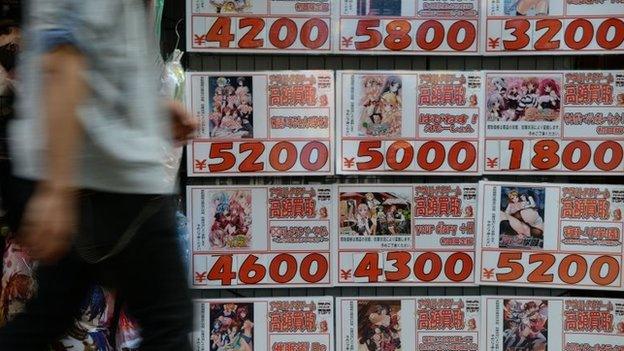Japan demands UN expert retract remarks on 'compensated dating'
- Published

Maud de Boer-Buquicchio said she had "received no official statistic" on the scope of compensated dating
Japan's government wants a UN expert to retract a claim that 13% of Japanese schoolgirls engage in "compensated dating", which can involve sex.
The foreign ministry said the remarks by Maud de Boer-Buquicchio were "inappropriate" and "regrettable".
But the special rapporteur on child prostitution said she had referred to estimates in open sources to highlight a phenomenon that had to be tackled.
Compensated dating sees men offering girls money or gifts for companionship.
The US state department warned last year, external that the practice, known as "enjo kosai" in Japanese, "continues to facilitate the prostitution of Japanese children".
'Worrying trend'
At the end of a visit to Japan on 26 October, Ms de Boer-Buquicchio said, external that she had discovered "the multiple forms in which the sexual exploitation of children develops and manifests itself" in the country.
"I'm referring in particular to this phenomenon of 'enjo kosai,' which is a trend amongst school girls. Some 13% of the school girls in Japan are involved in that kind of activity," she was quoted as telling a news conference by the Japanese foreign ministry.
The ministry asked the UN to give the source for the statistic, and on 2 November Ms de Boer-Buquicchio issued a clarification, external which said that she had "received no official statistic" on the scope of compensated dating.
"However, many of my interlocutors referred to it as a worrying trend which can easily lead to sexual exploitation of the minors involved in this lucrative business," she added.
"In the press conference, I made reference to estimates I had seen in open sources to highlight a phenomenon that must be urgently tackled."
But on Monday, the ministry demanded a retraction, complaining that it was "unacceptable" that the UN expert had cited "unreliable information" without a source.
- Published7 January 2015

- Published18 June 2014

- Published5 August 2010